May 2023 – COA Patient Advocacy Network News Bulletin
Advocacy Chat: Clinical Trials in the Community Oncology Setting: Positive Impact on Patient Care!
Clinical trials offer patients innovative and safe treatment options—but many patients don’t know how to get started. COA Director of Patient Advocacy and Education, Rose Gerber, MS, and Florida Cancer Specialists & Research Institute Vice President for Nursing and Research, Colleen Lewis, MSN, ANP-BC, AOCNP, will discuss the positive impact of clinical trials, how they work, and how community oncology practices are leading the charge to involve patients in the development of new medicines.
RSVP and join us for this educational advocacy chat today, Wednesday, May 17 at 12:00 pm ET. Register here for this event.
ICYMI: The Impact of Health Equity on Cancer Care
What does health equity look like for patients with cancer? COA’s Rose Gerber and Cancer Support Community’s Director of Health Equity, Audrey Davis, LPC, PM-LPC, explored factors that affect patient care and health outcomes, how to reduce their negative impact, and how organizations like COA and Cancer Support Community are working to increase health equity for all patients. Stream it on @OncologyCOA’s YouTube channel today.
Advocacy Spotlight: Armando Lastra, RN, BSN – CPAN Advocate, New York Cancer & Blood Specialists, New York, New York
When a change in insurance increased Armando Lastra’s copay from $25 to $1,250 a month for cancer medications, he didn’t give in to the system; he fought back. He learned how by participating in the COA Patient Advocacy Network (CPAN).
A critical care nurse by day, Armando was diagnosed with colon cancer at 47 and leukemia at 50. During treatment at New York Cancer & Blood Specialists, he joined the practice’s CPAN chapter and learned about challenges facing patients and oncologists, including abuses by pharmacy benefit managers (PBMs) that can raise costs or limit care.
“I had some insight into the world of oncology, but CPAN showed me there was so much that could be done to improve care for patients like me,” Armando said.
He’d already been asking state and national lawmakers to support cancer patients, but after his employer changed insurance, Armando had a different advocacy challenge. His new insurer’s PBM planned to raise his cancer medication copay by 5,000%. Armando immediately contacted his insurer, the PBM, and his employer, strongly advocating for a reversal of the increase. His efforts didn’t just reduce his monthly expense—it eliminated his copay entirely.
“Knowledge is power. That’s why the education and advocacy COA and CPAN offered me were so critical,” Armando said. “Had it not been for my experience with CPAN, I might not have been able to get the medication I needed.”
- To learn more about why CPAN advocates are committed to protecting locally delivered cancer care, visit CPAN’s Advocates & Their Stories page.
Cancer News You Can Use
Women Should Start Screening For Breast Cancer At Age 40 Instead Of 50, Health Task Force Says In Draft Recommendation – CNN 05/09
The U.S. Preventive Services Task Force is proposing that all women at average risk of breast cancer start screening at age 40 to reduce their risk of dying from the disease, according to a new draft recommendation statement. It’s an update to the 2016 recommendation, in which the task force recommended that biennial mammograms, which are x-rays of the breasts, start at age 50 and that the decision for women to screen in their 40s “should be an individual one.”
As Colon Cancer Spreads In Younger Adults, New Research Identifies Earliest Symptoms – NBC News 05/04
Prolonged and unexplained bouts of diarrhea, stomachaches, and spots of blood during bowel movements may be signs of early-onset colorectal cancer—a disease that’s increasingly found in young adults not old enough to qualify for colonoscopies—according to new research published in the Journal of the National Cancer Institute.
Should You Get Screened For Skin Cancer? As Summer Approaches, Here’s What To Know. – USA Today 04/29
It’s that time of year when temperatures begin to rise and Americans eagerly leave their houses to enjoy some much-needed Vitamin D. But as summer nears, health experts are warning against the consequences of excessive sun exposure. Here’s what experts want you to know about skin cancer, including symptoms, risks, and how to prevent it.
Community Oncology 101 Video – What is Specialty Pharmacy?
Specialty pharmacies improve cancer care by providing patients access to the medications they need, right in the clinic. Listen as Michael Diaz, MD, past president of COA and medical oncologist and hematologist with Florida Cancer Specialists & Research Institute explores the value of Specialty Pharmacy in this edition of Community Oncology 101.
Resources for Chapters
COA’s Sit in My Chair program puts policymakers in the shoes of patients with cancer to showcase the issues and lives at stake in cancer policy. Download the toolkit to begin planning an event and show federal and state representatives why they must stand up for community-based cancer care.
Recent News & Updates
Dr. Anjana Pillai explained that advances in both systemic and local regional therapies are helping more people live longer with liver cancer and move forward after treatment.
While the rest of the country’s cancer rates are falling, those in Iowa, Nebraska, Illinois, Minnesota, Indiana and Kansas — known as the Corn Belt — are rising at an alarming rate, data shows.
While emerging state legislation targeting pharmacy benefit managers (PBMs) may offer benefits for independent pharmacies, experts noted during a session at the Academy of Managed Care Pharmacy (AMCP) Nexus 2025 meeting in National Harbor, Maryland, that such laws could also drive up costs and limit patient access.
The COA Patient Advocacy Network Will Provide Patients and Survivors .....
